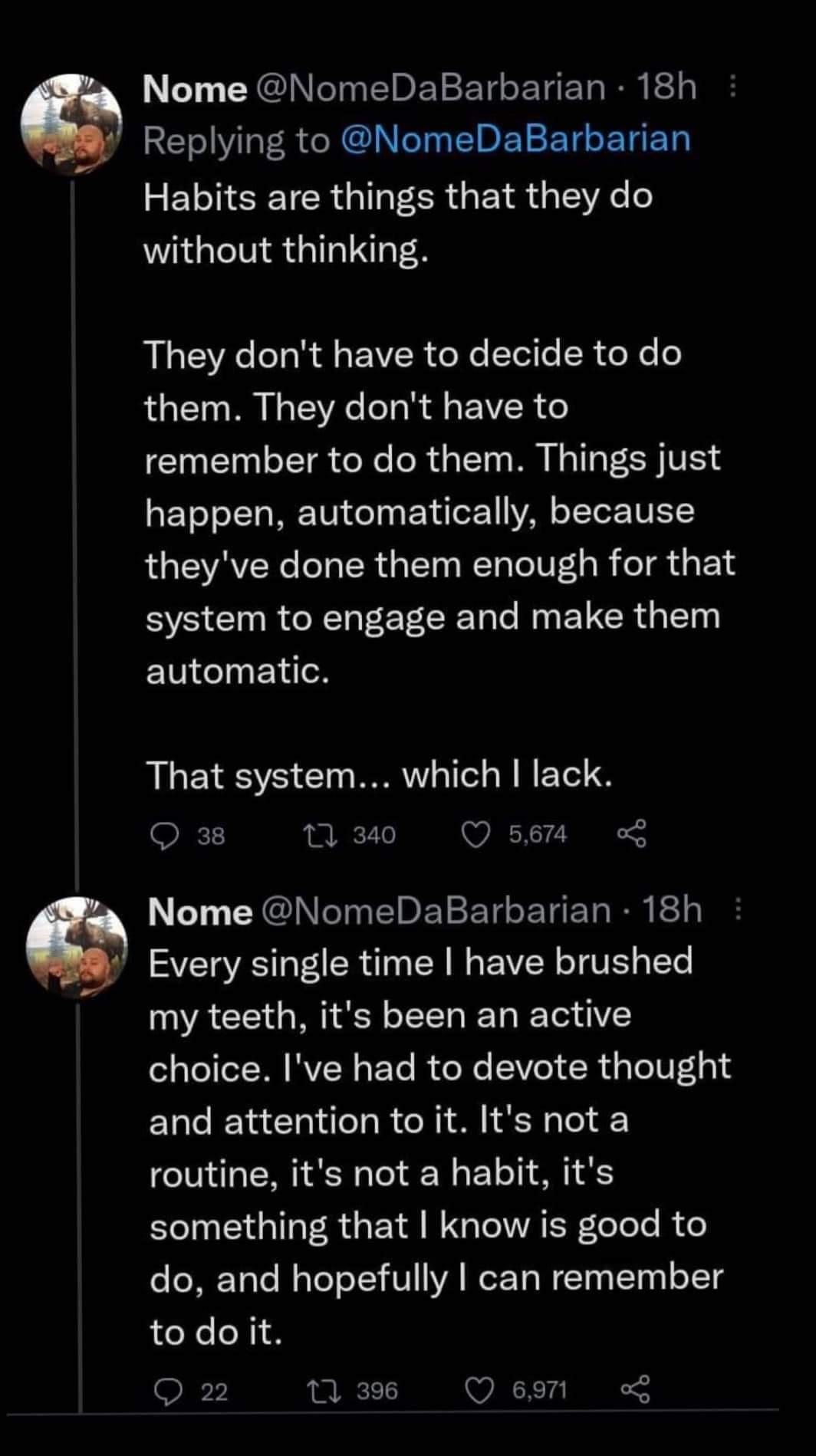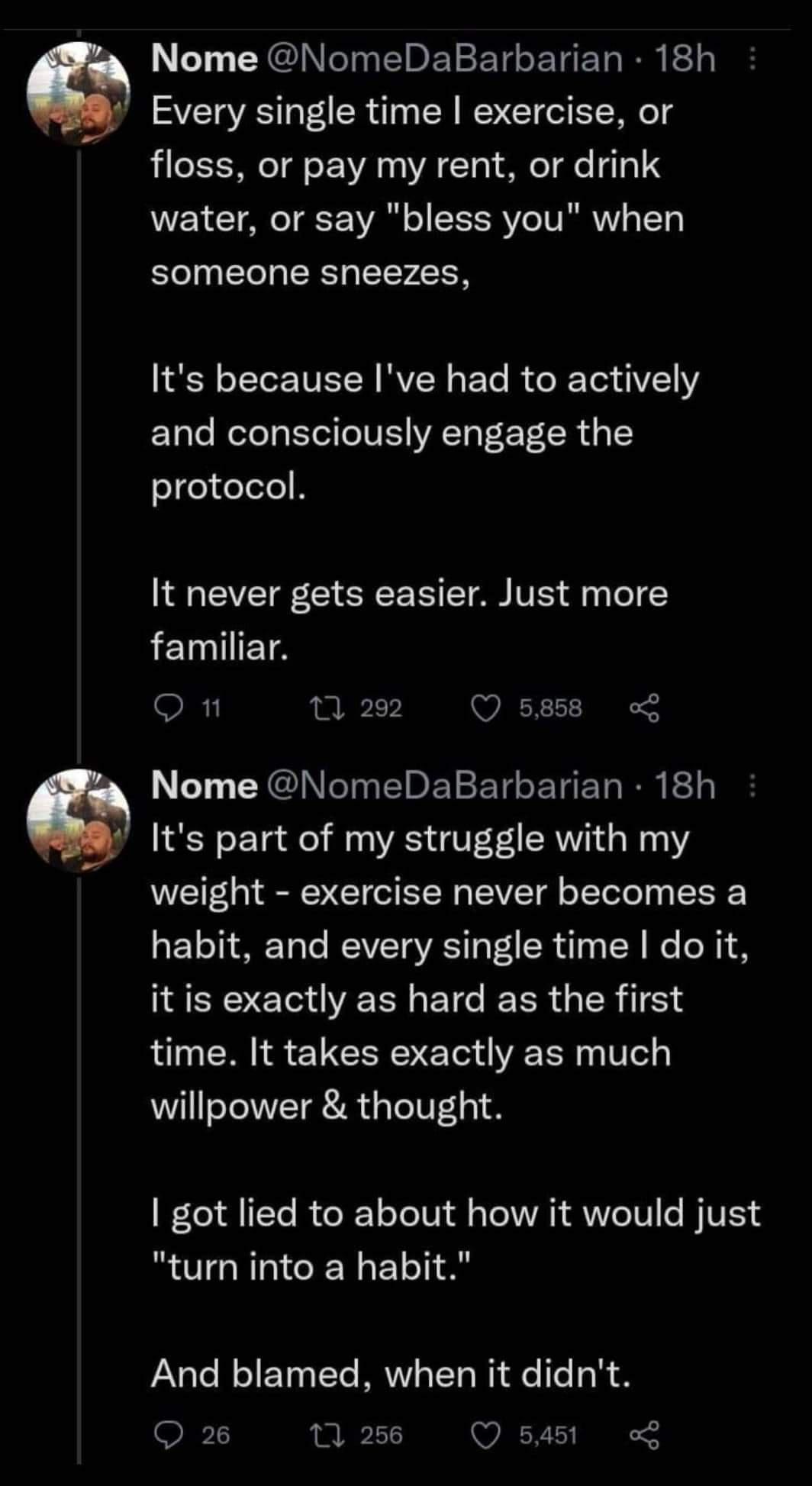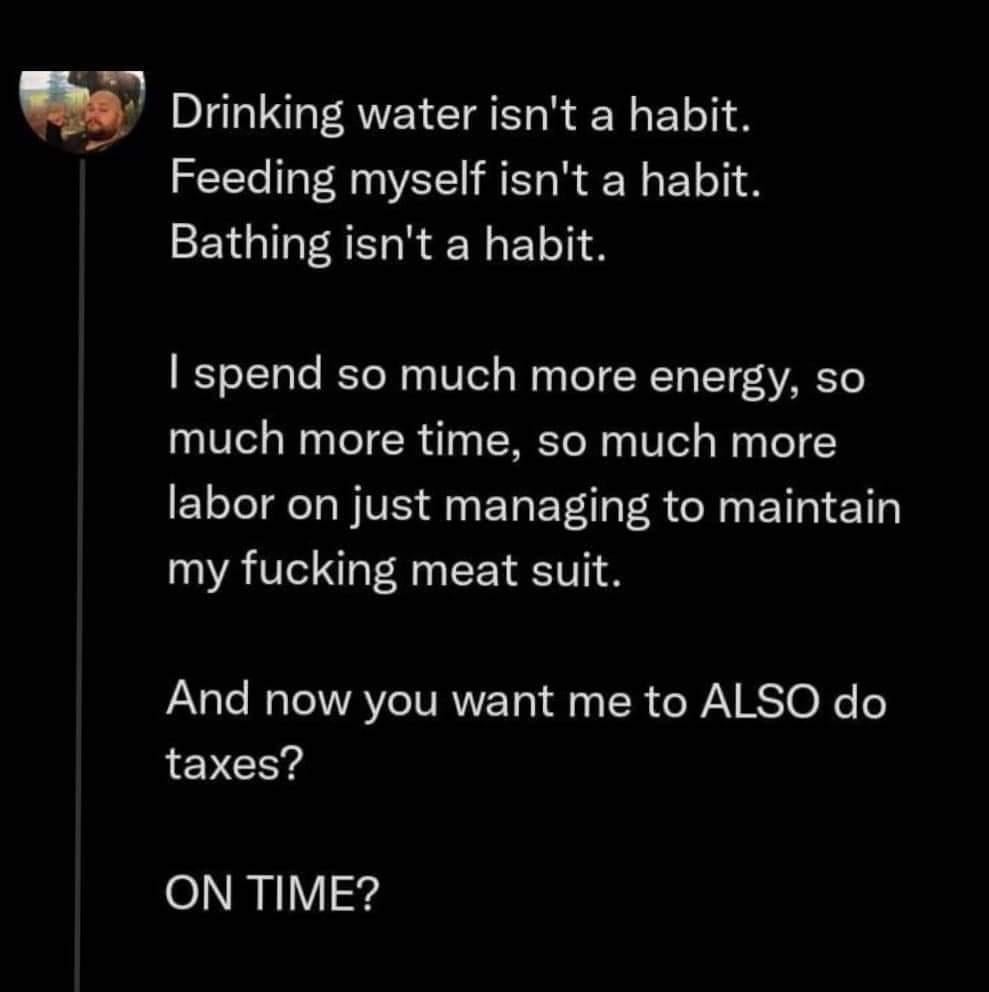Thank you Nome @NomedaBarbarian
For the visually impaired, the images are a series of Twitter screenshots.
Full transcription of text below images.

Full transcription of text below images.

Full transcription of text below images.

Full transcription of text below images.
@NomedaBarbarian on Twitter:
Thinking about how I’ve been lied to as an #ADHD person about what habits are.
That apparently is not what neurotypical folks get to experience.
Habits are things that they do without thinking.
They don’t have to decide to do them. They don’t have to remember to do them. Things just happen, automatically, because they’ve done them enough for that system to engage and make them automatic.
That system…which I lack.
Every single time I have brushed my teeth, it’s been an active choice. I’ve had to devote thought and attention to it. It’s not a routine, it’s not a habit, it’s something that I know is good to do, and hopefully I can remember to do it.
Every single time I exercise, or floss, or pay my rent, or drink water, or say “bless you” when someone sneezes,
It’s because I’ve had to actively and consciously engage the protocol.
It never gets easier.
Just more familiar.
It’s part of my struggle with my weight–exercise never becomes a habit, and every single time I do it, it is exactly as hard as the first time. It takes exactly as much willpower & thought.
I got lied to about how it would just “turn into a habit”. And blamed, when it didn’t.
Drinking water isn’t a habit. Feeding myself isn’t a habit. Bathing isn’t a habit.
I spend so much more energy, so much more time, so much more labor on just managing to maintain my fucking meat suit.
And now you want me to ALSO do taxes?
ON TIME?


Sorry, I’m confused. There’s no question that there are musicians with ADHD, right? So how did those musicians manage to practice and automate their playing if habit-forming is such an uphill battle?
Playing an instrument or doing art gives you a dopamine boost and gets you hyper focused. When we’re hyper focused we’re like learning superheroes as long as we’re hyper focusing on a single thing, and that thing is novel.
There’s something about playing that lights up their motivation centre. So it’s not so much a routine as it is an impulse that gives them a dopamine boost - like an addiction. It’s not that any of us couldn’t do it with enough focus, but it would be constant intentional action to keep working at it. And a lot of us just don’t have the long term focus for that because goals far in the future are hard to keep focused on, unless you get into hyper focus, where you just become obsessed with achieving something. The trouble is that most of us never achieve that satisfaction that something is “complete”. So when things seem never ending, sometimes we just… give up and move on to something else that seems more interesting now.
I’m guessing “muscle memory” is something that’s distinct from a habit?
Typing, for example, or playing an instrument, etch their way into our brains so deeply that they must be more than just habits.
I’m not a musician but I’ve known some, and they have a drive that transcends habit.
They choose to practice, again and again and again and again and again. And every time, it’s the same amount of effort as picking up an instrument for the first time.
For me (piano player/singer and dabble in others) it’s a quick dopamine hit. I struggled most with the ‘boring’ part of training but I hyperfocused through a lot of it and my teacher thankfully new that I needed motivation through that so instead of just learning my exam pieces and technical exercises I was playing pop songs as well that I could sing along with myself etc.
The point I quit lessons was second year college with a new teacher where I spent all year on two pieces. I nearly lost my mind and never went back to lessons.
Even today I struggle to get myself to the piano but I can lose myself for hours and forget to eat or go to the bathroom and just float along on the sea of sound and dopamine 😂
Because it’s not a habit. It’s a deliberate choice to pick up their instrument and play. Every time.
Muscle memory helps, because that seems to be separate from forming habits. Once you’ve got it, it seems to stick.
I was in a band in my late teens, and I had to force myself to practice if I was alone. Practicing with the band was much easier because it was something that I really enjoyed, but even then, I’d almost always be late, or have to be reminded to go.
This was something that I loved to do, but still really struggled with. As soon as something else came along that was a bigger distraction, the band was done.